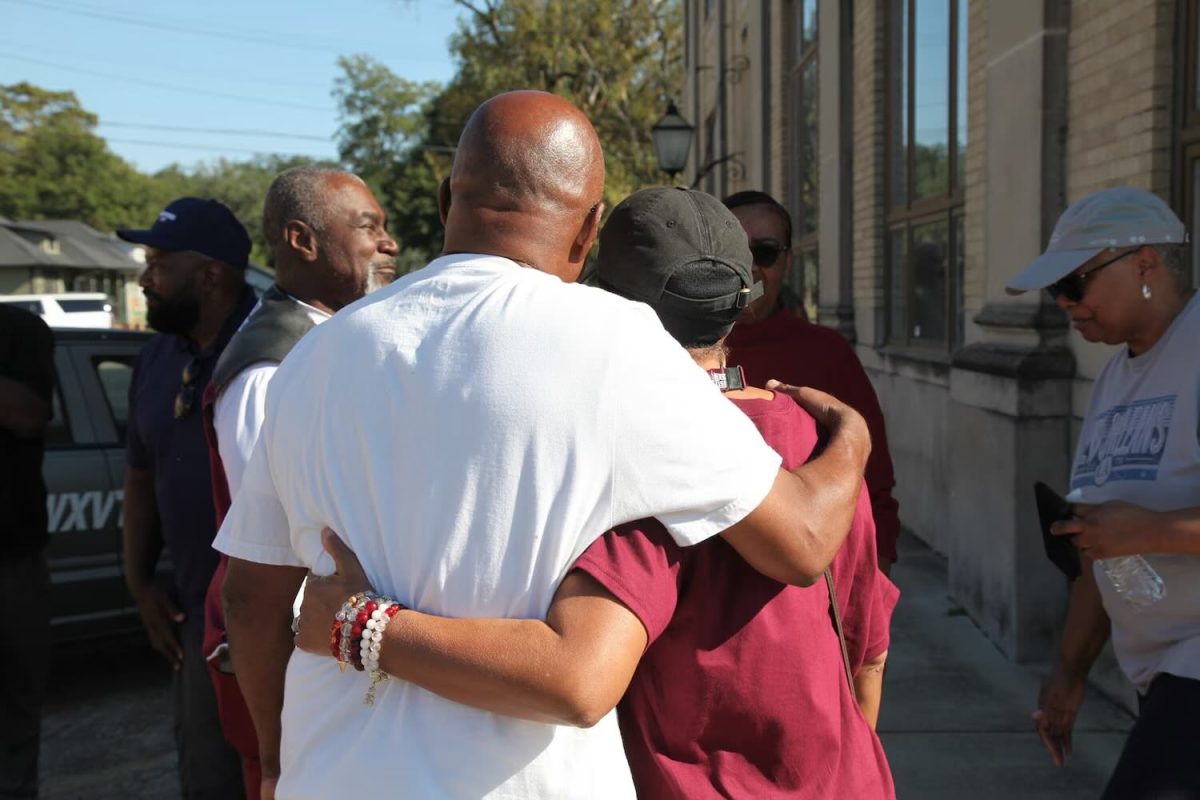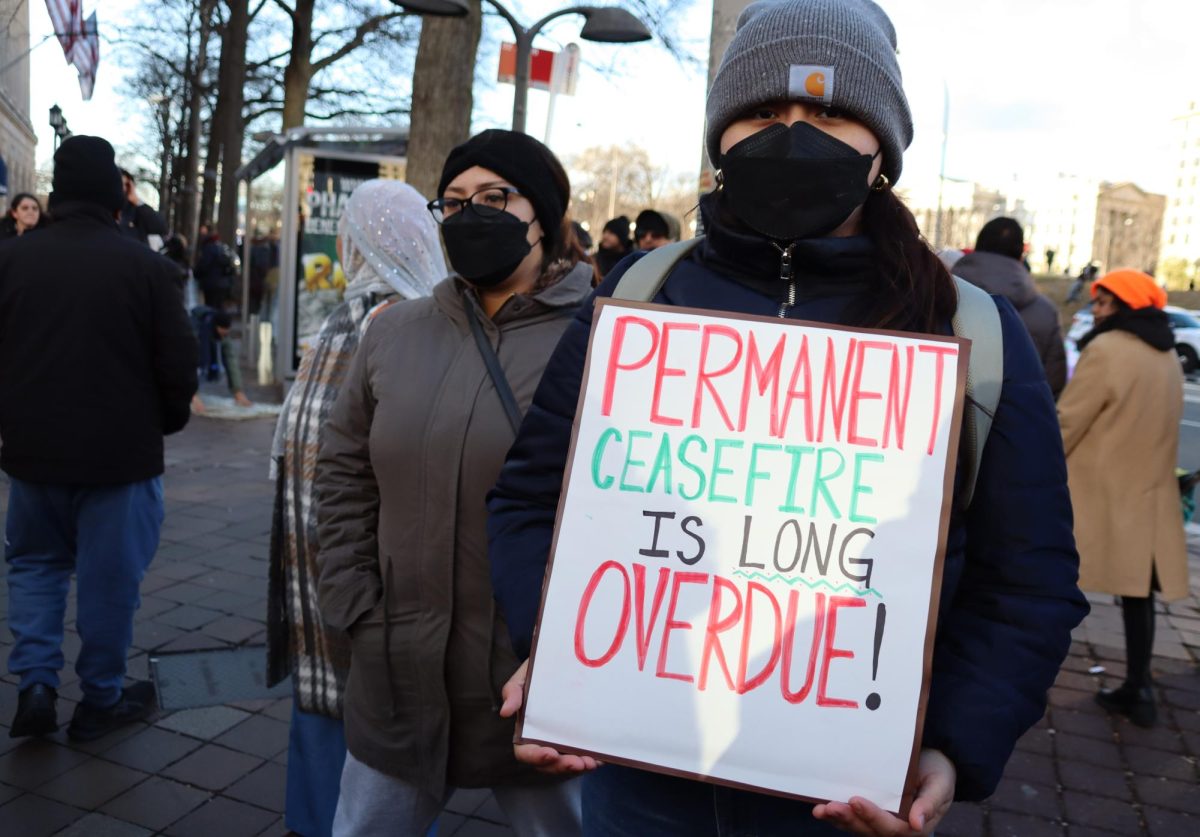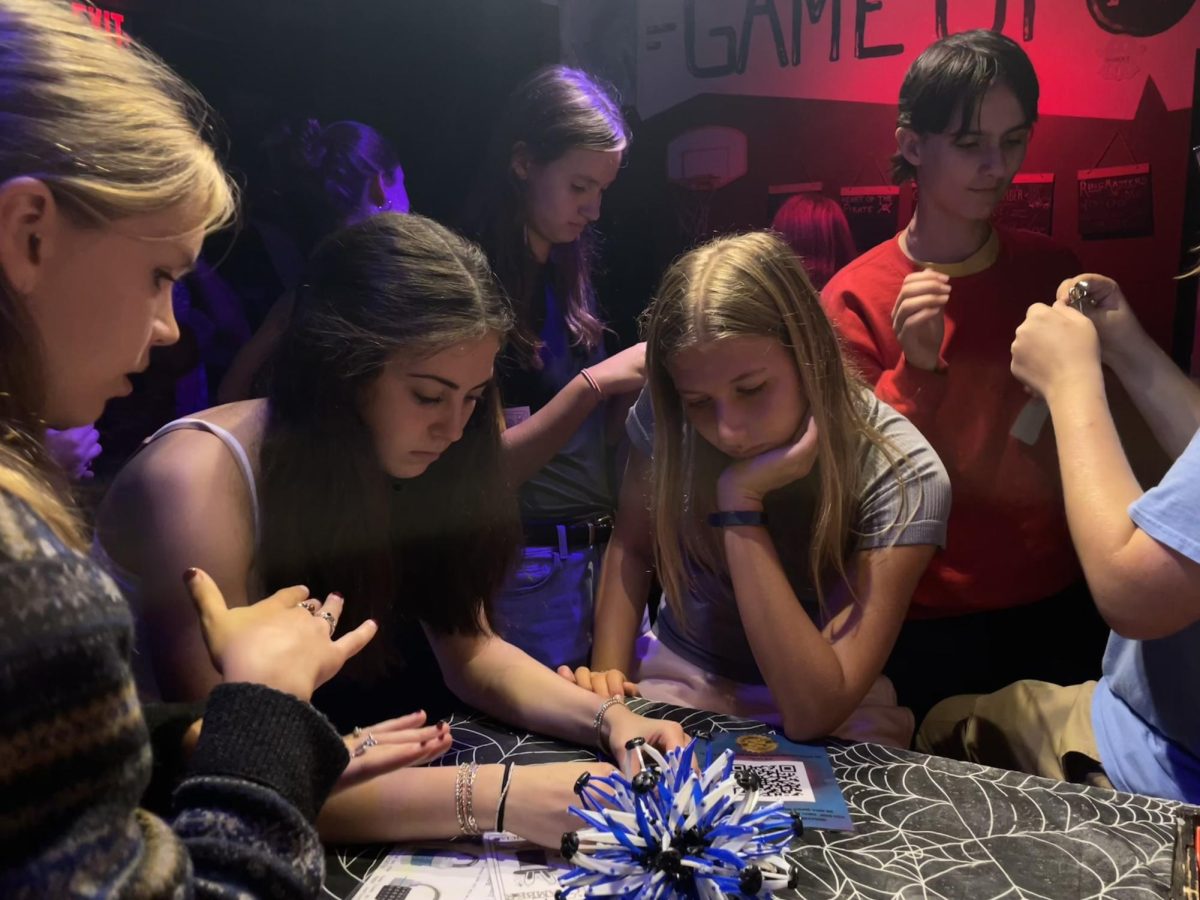On the corner of Fuller Road and Medical Center Drive, under a bright sun, over a hundred students, parents, and community members gathered with signs and flags. Groups of people were ushered across the busy intersection by marshals in yellow vests, and the sound of car horns filled the air.
Two weeks earlier, the University of Michigan’s gender clinic, which serves patients from all over Michigan, as well as from other states, announced it would stop providing access to puberty blockers and hormone replacement therapy for transgender patients under the age of 19.
Puberty blockers were first prescribed in the early 1980s to treat precocious puberty, a condition in which puberty begins abnormally early. These medications work by pausing puberty and are fully reversible, allowing development to continue after treatment is stopped.
Starting in the 1990s, they have been used to treat gender dysphoria, which is defined by the American Psychological Association as “the psychological distress that results from an incongruence between one’s sex assigned at birth and one’s gender identity,” because they can delay some of the distressing physical changes that puberty can cause for transgender teens. Puberty blockers have been shown to have no differences in side effects when used to treat precocious puberty or gender dysphoria.
Hormone replacement therapy is another form of gender affirming care, where transgender people take an increased amount of hormones, such as estrogen and testosterone to physically appear more masculine or feminine. Both of these treatments require minors to have informed consent and parental approval, as well as therapy, and often years on waiting lists to get any form of care.
In the time since U of M announced its decisions, people in Ann Arbor have organized legal action and political demonstrations such as the protest that happened on Sept. 11, outside University medical buildings
One speaker at this protest was an anonymous transgender teen, who wrote a statement read by a marshal, reflecting on her experience and finding joy in her identity.
“I always wanted to grow my hair long,” the teen wrote, “I longed to play with the bright, pretty girls’ toys and dolls.”
She explained how her family didn’t have the words for her identity until they went to a pride festival, finding a booth for Stand With Trans.
“All the information they had made me feel at home, alive and full of joy, and I knew that I was a transgender girl. We met so many people just like me. I had never felt so seen or so loved. My mom cried a lot that day, not out of sadness so much, but out of love.”
Another speaker was Kami, a parent whose daughter had been receiving gender affirming care at the University of Michigan for five years.
“It’s not okay that the University of Michigan decided to bow to that interest without even filing a legal challenge,” Kami said. “I want care reinstated, I want as much attention on this issue as possible.I got my child back when she was able to start care. She would not be alive if she had not had that.”
In the statement released on Aug. 25, the U of M gender clinic stated that it had been served with a federal subpoena as part of a civil and criminal investigation, and that its decision to end care was due to escalating external risks and threats. Many people have expressed mixed feelings about this decision.
CHS senior Lu Bliss, who had been receiving healthcare at U of M’s gender clinic, expressed being upset with both the university’s decision and the amount of federal involvement.
“Why should the government tell us what to do?” Bliss said. “They’re the government, they’re not my mom or my doctor.”
This June, the Supreme Court published its ruling on United States v Skrmetti. This ruling allowed states to ban the prescription of puberty blockers and hormone replacement therapy for transgender patients.
On January 28th, President Donald Trump signed an executive order titled “Protecting Children from Chemical and Surgical Mutilation.” This order aims to severely restrict gender affirming care for those under the age of 19 nationwide by limiting funding to programs that provide this care and by urging the attorney general to consider using the Parental Kidnapping Prevention Act against states and parents that allow their children to access gender affirming care.
Briar Nordstrom, a student at Washtenaw Community College, stated that due to government action, they are not hopeful that gender affirming care will be reinstated at the University of Michigan. However, they still believe that the demonstration was important.
“I hope that these general people of Ann Arbor are able to see the amount of people here who support the trans community and are trans,” Nordstrom said. “I hope for at least some sort of action.”










